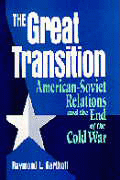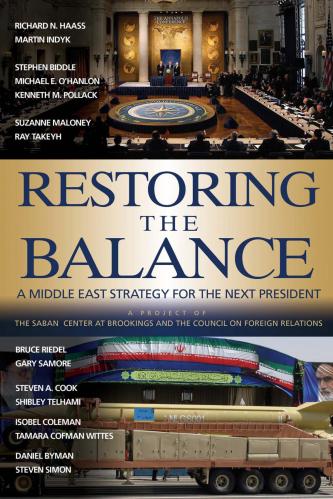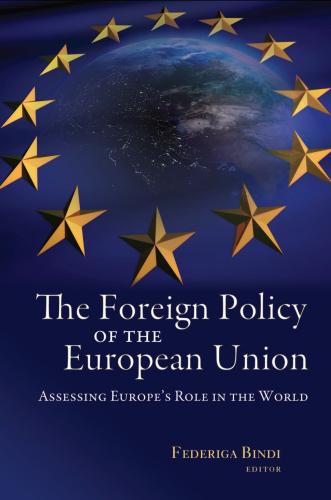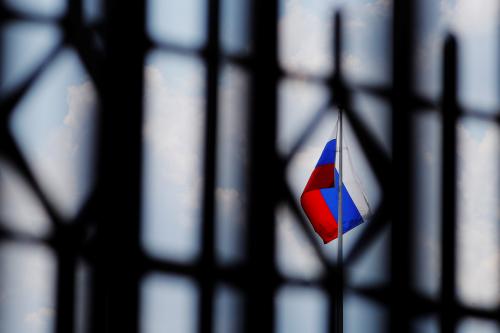This piece is part of a series remembering the life, career, and legacy of Helmut (Hal) Sonnenfeldt — a member of the National Security Council, counselor at the Department of State, scholar at the Johns Hopkins School of Advanced International Studies (SAIS), and Brookings expert.
Hal Sonnenfeldt was already a living legend in policy circles when I first came to Washington in the mid-1970s. He was often mentioned in the same breath as his boss Henry Kissinger whenever any discussion turned to U.S. relations with the Soviet Union; together they formed a formidable team in dealing with Washington’s most powerful and dangerous adversary. Hal shared much with Henry. Both men were immigrants, and they both cherished the values that had enabled them to escape Nazi Germany and thrive on America’s shores. Both men were what are termed “realists.” And they both were brilliant.
It was hardly a surprise that Kissinger took Hal with him from the National Security Council to the State Department where he served as counsellor to the secretary of state. Unlike those who bayed for constant confrontation with the Soviets, Henry and Hal recognized that reaching understandings with Moscow was not the same as capitulation to the Kremlin. For that reason, neither of them viewed arms control as an inherently flawed concept, but rather one of many means of preventing further gains by an inherently hegemonic USSR, about which neither bore any illusions.
The position of State Department counselor is one of considerable importance. Its occupant often is the original source of a secretary of state’s ideas and formal positions, and equally often has the final word with the secretary before the State Department goes public on any issue. Hal was possibly the most influential official ever to hold that position; it was no accident that he was called “Kissinger’s Kissinger.” Moreover, unlike many who both preceded and followed him, he was a public figure, at times a notorious one, particularly when he was named the author of the “Sonnenfeldt Doctrine” that purportedly — and, according to Hal, inaccurately — accepted the notion of a permanent Soviet sphere of influence.
Hal’s formidable intellect defied the kind of pedestrian thinking and knee-jerk policymaking that was far from rare in the 1970s, although considerably less common than in the current political environment. On the one hand, Hal instinctively understood far better than others that there were limits to Wilsonian idealism, and that America could not serve as the world’s moral tutor. On the other hand, he was always a strong proponent of a powerful defense posture, without which America would lack the credibility to persuade allies and friends, and dissuade aggression by adversaries.
Hal thus angered hard-liners because of his seeming willingness to recognize the reality of Soviet power. At the same time, he antagonized liberals who despised his close association with Kissinger, whom they detested. Yet just as he could endure endless hours of dealing with Minister of Foreign Affairs Andrei Gromyko in an effort to reach some level of accommodation with the Soviets, he was also a guiding spirit behind the Helsinki accords, which for the past four decades have provided a model framework for human rights not only in Europe but worldwide.
Hal also was a key figure in the opening to China, a country that today is viewed as America’s primary long-term adversary. Yet at the time, and for the next several decades, the decision to restore and build upon American relations with the Asian giant was rightly recognized as one of the key strategic moves that ultimately contributed to the collapse of the Soviet Union.
My wife and I came to know Hal and his wife Margie, years after he retired from the State Department, when he was firmly ensconced as an éminence grise at the Brookings Institution. I would often consult him when I served as under secretary of defense in the early years of the George W. Bush administration. Hal and I later were fellow members of the Chief of Naval Operations Executive Panel, the Navy’s top policy advisory committee. He was always a source of sage advice, particularly about how best to deal with the Russia of Boris Yeltsin and then the very different Russia that emerged under Vladimir Putin, as well as with an increasingly powerful and assertive China. Hal never minced words; that was not his way. Agree with him or not — and as he and I shared a realist outlook on the world, I tended to agree with him more often than not — no one would never take his words any more lightly than in the spirit in which they were given.
I wonder how Hal would view what passes for current American foreign and national security policy. As a realist, he no doubt would support efforts to somehow terminate America’s endless wars, and to avoid the interventionist impulse to unseat unsavory regimes. On the other hand, I strongly suspect that he would find it hard to tolerate a policy process that consists essentially of tweets and last-second impulses, and that is dominated by tiny minds that glorify inconsistency as a negotiating tool. And because Hal was an immigrant himself who served his country both in and out of uniform, I am certain that he would not take kindly to the views of those who view those who seek to land on our country’s shores as somehow diminishing America’s greatness rather than, like Hal himself, adding to it — and in his case, immeasurably so.
The Brookings Institution is committed to quality, independence, and impact.
We are supported by a diverse array of funders. In line with our values and policies, each Brookings publication represents the sole views of its author(s).











Commentary
Remembering Hal Sonnenfeldt’s formidable intellect
October 17, 2019